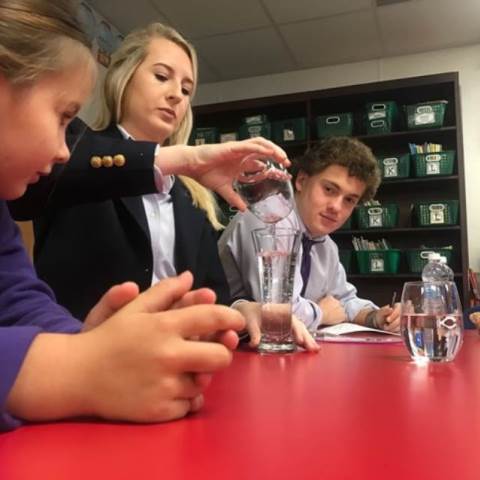

The psychology students in Mr. Jacobs' classes got to visit the wonderful students in the pre-K, kindergarten, and second grade classes. They were doing some simple experiments with our young Darlington students to test some things that we don't typically go over in school. Jean Piaget was a Developmental Psychologist who began a search in the 1920's for why students got answers to certain questions wrong. He noticed that at certain ages most students gave the same answers, or type of answers to the same type of questions. With this in mind, he began to put children into stages based primarily on their age.
From birth to nearly two-years-old, children are in the sensorimotor stage of development and begin to understand the concepts of object permanence (things exist when out of view) and stranger anxiety.
From around two to six or seven, children are in the pre-operational stage of development and demonstrate the concepts of pretend play and begin to exhibit egocentrism (the difficulty in taking another's perspective).
From about seven to 11, children are in the concrete operational stage of development where they demonstrate an understanding of conservation (something in a different form has the same mass/amount) and mathematical transformations.
From 12 through adulthood, children enter into the formal operational stage of development and begin to demonstrate abstract logic and mature stages of moral reasoning.
By asking our pre-K and kindergarten friends the same questions as the second graders, the psychology students got to see whether Piaget was on the right track. The psychology class was not concerned with the answers our young students gave, but rather their thought processes.
If you would like to see a brief explanation/ a few examples of the types of experiments/ questions we were doing/ asking our young friends, feel free to check out this YouTube video:
Click here to view a photo gallery from the visit.